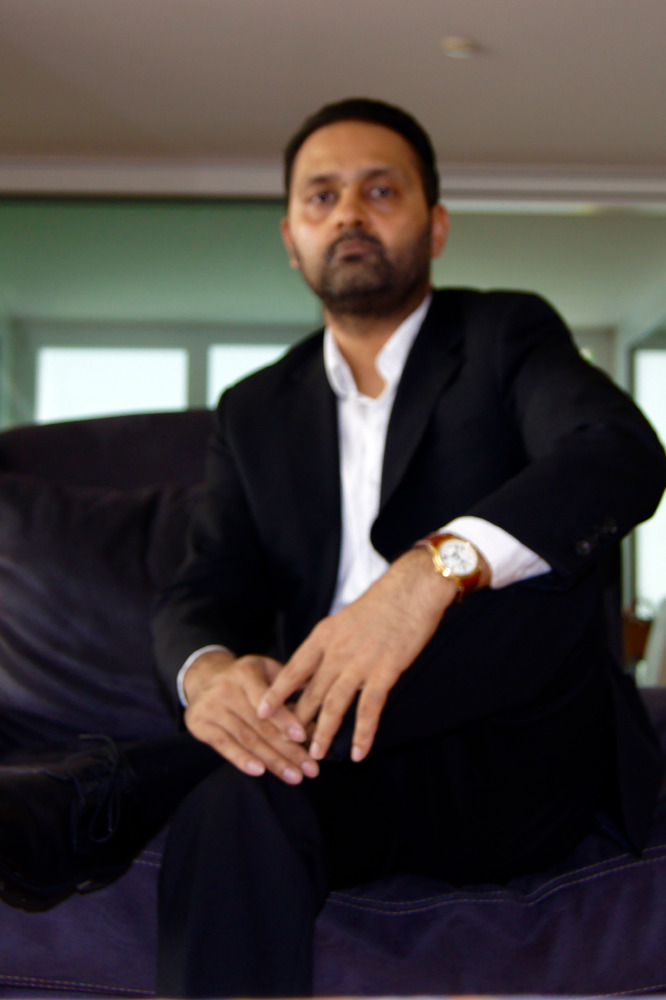The answer to an enlightened, fulfilled life lies not in technology and modern creature comforts but in the teachings of a 3,000-year-old Sanskrit language, writes the acclaimed novelist, Ruchir Verma. The author of The Boy from Allahabad (out now) reveals the importance of ‘Moksha’ and the three steps we can all take to realising our full potential.

Ruchir Verma writes for Female First
Just like ‘to be or not to be?’ poses a question of life or death, ‘Moksha or Varchasva?’ poses a question of how to live a fulfilled life. These two words, derived from 3,000-year-old Sanskrit language, aptly capture the conundrum of the philosophy of life.
Moksha refers to mental and spiritual freedom from materialistic life and ignorance, hence paving way to self-realisation and self-knowledge. Varchasva, on the other hand, refers to complete dominance of a situation, topic, people or life.
In the growing world of technology and social media, there are plenty of distractions to keep doing petty, meaningless actions as way of bleeding out our lives. Self-obsession and false appreciation from unknown people have a powerful addictive and compounding effect that may tempt one to believe that they are living a good life. But that addiction takes us away from realising our potential which could lead to a truly fulfilled, meaningful and happy life.
It’s fair to say that the overwhelming majority of people live life without knowing or pursing their potential. And there is nothing wrong with that. It is a choice, and that choice must be made deliberately and consciously.
But here is my challenge to all of humanity: Each and every one of us can live a fulfilling, meaningful life for greater good if we focus on realising our true potential.
Of course, there is no easy answer, or even a difficult universal answer to the purpose of life. But the trick is in brooding over the question, challenging ourselves and finding our own answer as to the purpose of our life.
So how do we do that? Here’s my three steps:
Step 1: Define your calling
Let’s think about what makes us happy. What does not? If we had a free, unconstrained choice, what will we choose to do? If the people-made frameworks of legal, ethical, religious, political, scientific, monetary, societal and peer pressure etc did not force us down a certain path, would we choose differently?
Finding our true calling is not easy. There are many false choices that will raise their head. Too easy, too hard, too idealistic, too fancy, an urge to follow someone else’s calling.
Stress test it.
Does that purpose make you get up early and sleep late thinking about it? Can you visualise success? Will you give it up when faced with resistance and challenges? Will you die trying?
The calling could be small or grand, selfish or selfless. The test we must apply to our calling is that of ‘greater good’, and ‘no harm’. Being selfish does not preclude the principles of greater good or not causing harm to others.
If we discover our calling and have undying conviction in it, nothing can come in the way of achieving it.
Step 2: Pursue your potential
Leverage and devote everything you have – your strengths, capabilities, friends, family, network, the other 7 billion humans and all the earthly and spiritual resources at your disposal in pursuing your calling. The constant voice in our head pushing us to achieve our potential must never stop.
There will be a cost to pay of course. But if the conviction is strong, these costs will appear trivial in the pursuit. And you will find that the entire universe will join you in helping achieve your potential in the form of luck, surprises, generosity of strangers, and many others that you cannot even fathom unless you tread the path of your conviction.
The winning formula is simple – Never Give Up!
The path of Moksha takes us towards an enlightened life akin to that of Buddha. Self-realisation and happiness from within that radiates to others around us, a path of giving and simplistic living. Not a sainthood, not a renouncement of materialistic pleasure, rather a balance between selfishness and selflessness towards the goals of greater good and no harm. This is where the extra-ordinary people hide as ordinary but fulfil their potential and make a huge difference to the world.
The path of Varchasva is the path towards dominance, power and control. Extreme on materialistic aspects such as money and fame and influencing the lives of millions of other this is the life of politicians, religious leaders, top scientists, entrepreneurs and other revolutionaries of all sorts. As long as the principles of greater good and no harm hold, this path is an attractive way of achieving one’s potential and making a huge difference to the world.

Born in Allahabad, Ruchir Verma is a Senior Executive at Zurich Insurance Group. He is widely considered one of the leading authorities on Behavioural Economics, a subject on which he also speaks at various conferences. His debut novel, The Boy from Allahabad, is described as a major work of cosmopolitan fiction that challenges traditional thinking and the pursuit of fulfilment. It is out now on Amazon UK in paperback, priced £13.30, and as an eBook, priced £8.99.

